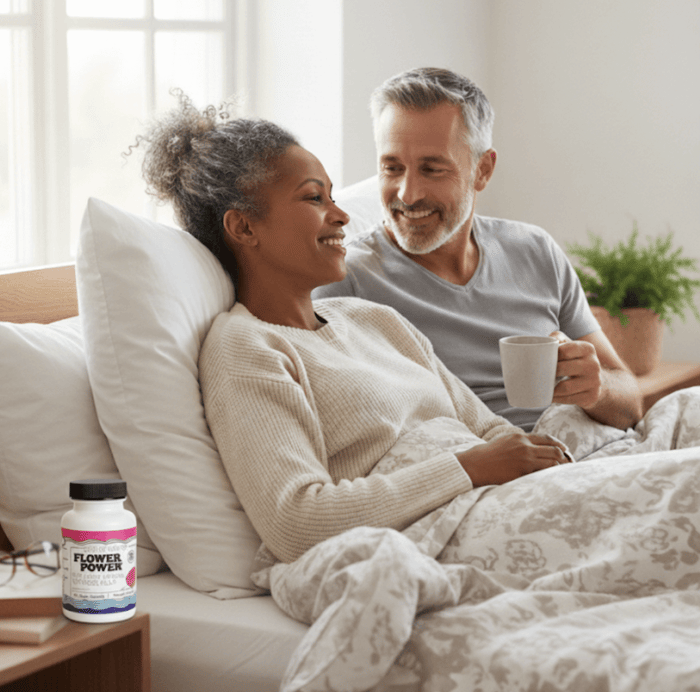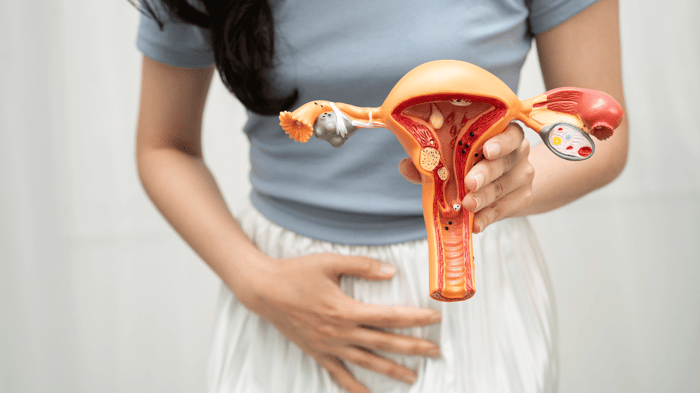Vaginal dryness is one of the most common yet often overlooked symptoms of menopause. Many women assume it is a minor inconvenience or accept it as an inevitable part of aging. However, untreated dryness can lead to discomfort, painful intimacy, and even impact overall vaginal health.
While hormone therapy is a widely known option, non-hormonal strategies have emerged as safe, effective alternatives for long-term relief. This article explores why vaginal dryness occurs during menopause, the risk factors, and comprehensive non-hormonal solutions to restore comfort and maintain vaginal health.
Understanding Menopausal Dryness
Causes and Risk Factors
Menopausal vaginal dryness is primarily caused by declining estrogen levels. Estrogen maintains the thickness, elasticity, and moisture of vaginal tissue. As levels decrease, the vaginal mucosa becomes thinner and less lubricated, increasing susceptibility to irritation. Additional factors that exacerbate dryness include:
-
Certain medications (antihistamines, diuretics)
-
Chronic illnesses such as diabetes
-
Smoking, excessive alcohol, or high-caffeine consumption
-
Stress and poor sleep
Understanding these risk factors is essential to address dryness before it significantly impacts quality of life.
Common Symptoms and Impact
Menopausal vaginal dryness can present in a variety of ways, often extending beyond simple physical discomfort. Understanding these symptoms is crucial for identifying the condition early and implementing effective non-hormonal strategies.
Persistent dryness and itching
One of the most noticeable symptoms is a constant feeling of dryness, often accompanied by itching. This occurs because declining estrogen levels reduce natural lubrication and thin the vaginal lining, making the tissues more sensitive and prone to irritation.
Burning sensations or irritation
Many women report a burning or stinging sensation, especially after urination or sexual activity. This irritation can lead to discomfort in daily life, affecting walking, exercise, or even sitting for prolonged periods.
Pain during sexual activity (dyspareunia)
Vaginal dryness frequently causes painful intercourse, medically known as dyspareunia. Lack of adequate lubrication increases friction during sex, which can lead to microtears, bleeding, or significant discomfort. This symptom often discourages intimacy and may strain relationships over time.
Decreased sexual desire and arousal
Chronic discomfort and pain during sexual activity can lead to reduced libido. Women may feel less motivated to engage in sexual activity due to fear of pain or embarrassment, which can further affect emotional and relational well-being.
Impact on emotional health and quality of life
Beyond physical symptoms, persistent vaginal dryness can negatively affect self-esteem, body image, and emotional health. Women may experience frustration, anxiety, or reduced confidence in intimate situations. In some cases, this can contribute to stress and affect overall quality of life, making early intervention and preventive care critical.
Overall importance of addressing symptoms
Recognizing the multifaceted impact of menopausal vaginal dryness highlights the importance of timely, effective management. Non-hormonal strategies, such as internal hydration supplements, external moisturizers, and lifestyle modifications, can help restore comfort, protect vaginal tissue, and support emotional and sexual well-being.
Role of Estrogen and Aging
Estrogen plays a vital role in maintaining vaginal tissue integrity, blood flow, and natural lubrication. With aging, the vaginal mucosa loses elasticity and hydration, and local blood supply diminishes. While these changes are natural, non-hormonal interventions can help preserve tissue health, reduce irritation, and maintain sexual comfort.
Non-Hormonal Lifestyle Interventions
Lifestyle choices play a significant role in managing menopausal vaginal dryness:
Daily Hydration and Nutrition
Adequate water intake is essential to support natural vaginal lubrication. Nutrient-rich foods also help:
-
Omega-3 fatty acids (salmon, flaxseed, walnuts) support mucosal tissue.
-
Vitamins C and E contribute to collagen production and tissue repair.
-
Zinc and amino acids aid cellular function and mucosal health.
Exercise and Circulation
Regular physical activity, including pelvic floor exercises, increases blood flow to the vaginal tissues, supporting natural lubrication and elasticity.
Sleep and Stress Management
Chronic stress raises cortisol, which can disrupt hormone balance and exacerbate dryness. Quality sleep and stress-reduction techniques, such as meditation or yoga, are beneficial.
Environment and Clothing Choices
Wearing breathable fabrics and avoiding overly tight clothing reduces irritation. Cotton underwear and loose-fitting garments allow ventilation and minimize friction.
Non-Hormonal Topical Approaches
Topical solutions can provide immediate relief:
Internal Moisturizers
Internal vaginal moisturizers hydrate the mucosa from within, offering long-lasting comfort. They are particularly useful for women experiencing moderate to severe dryness.
External Lubricants
Water-based and silicone-based lubricants provide surface hydration. Silicone-based lubricants last longer during sexual activity, while water-based options are safe with condoms.
Natural Alternatives
Some women prefer natural options, such as:
-
Aloe Vera Gel: Soothes and moisturizes sensitive tissue.
-
Coconut Oil: Provides long-lasting lubrication (avoid with latex condoms).
-
Vitamin E Oil: Supports tissue health and reduces irritation.
Oral Supplements for Vaginal Health
Maintaining vaginal hydration from within is a key strategy for managing menopausal dryness, especially for women seeking non-hormonal solutions. Oral supplements can provide targeted support by nourishing tissues, balancing vaginal flora, and enhancing natural lubrication.
Herbal and Plant-Based Ingredients
-
Slippery Elm Bark: Traditionally used for soothing mucosal tissues, Slippery Elm Bark forms a protective layer that helps retain moisture in the vaginal lining, reducing dryness and irritation. Its mucilaginous properties can also support overall tissue comfort.
-
Hyaluronic Acid: Known for its ability to attract and retain water, hyaluronic acid helps improve the hydration and elasticity of vaginal tissues, promoting long-term comfort and resilience.
Micronutrients for Tissue Health
-
Amino Acids: Essential building blocks for protein synthesis, amino acids support the repair and maintenance of vaginal mucosa, ensuring tissues remain strong and healthy.
-
Zinc: A critical mineral for cell regeneration and immune function, zinc helps maintain the integrity of vaginal tissue and supports natural lubrication.
-
Antioxidants (Vitamins C & E): These protect mucosal cells from oxidative stress, preventing tissue damage and supporting long-term vaginal health.
Probiotics for Vaginal Flora Balance
Maintaining a healthy vaginal microbiome is essential for natural lubrication and infection prevention. Probiotic supplements containing Lactobacillus strains help maintain the acidic pH of the vagina, which supports hydration, reduces irritation, and lowers the risk of recurrent infections.
Scientific Evidence Supporting Non-Hormonal Supplements
Emerging clinical research indicates that non-hormonal supplements can effectively improve vaginal hydration, reduce discomfort, and enhance sexual comfort without affecting hormone levels. Studies have demonstrated that combinations of herbal ingredients, micronutrients, and probiotics can restore mucosal moisture, support tissue elasticity, and promote overall vaginal health in menopausal women.
Key Takeaway
For women seeking safe, non-hormonal solutions to menopausal dryness, oral supplements can provide systemic support that complements topical moisturizers and lifestyle strategies, helping maintain comfort, sexual well-being, and tissue integrity over time.
Innovative Non-Hormonal Solutions
Emerging technologies and formulations are expanding options:
-
Vaginal Devices: Moisture-retaining inserts and hydrating applicators provide targeted hydration.
-
Novel Topical Formulations: Natural extracts and advanced non-hormonal compounds are being studied for longer-lasting relief.
-
Future Research Directions: Ongoing clinical trials are exploring hormone-free therapies to address dryness safely and effectively.
Prevention and Daily Maintenance
Preventive care is key to long-term vaginal health:
-
Gentle Hygiene: Avoid harsh soaps, scented products, and douching.
-
Routine Checkups: Regular gynecological evaluations help detect early signs of dryness and tissue changes.
-
Lifestyle Integration: Combining hydration, nutrition, topical care, and supplements maintains tissue integrity.
-
Education and Awareness: Recognizing early symptoms allows timely intervention, preventing chronic discomfort and complications.
Frequently Asked Questions (FAQs)
What causes vaginal dryness during menopause?
Vaginal dryness during menopause is primarily caused by the decline in estrogen levels, which reduces natural lubrication and elasticity of the vaginal tissue. Aging and hormonal fluctuations also contribute to thinning of the mucosa and increased sensitivity. Other factors like stress, medications, and certain lifestyle habits (e.g., smoking or dehydration) can worsen dryness.
Can non-hormonal approaches really relieve menopausal vaginal dryness?
Yes. Non-hormonal strategies such as internal hydration supplements, topical moisturizers, water-based lubricants, and natural oils can provide effective relief. These approaches support the vaginal lining without altering hormone levels, reduce irritation, improve elasticity, and maintain natural pH balance.
How can diet and hydration help with vaginal dryness?
Maintaining proper hydration and consuming nutrient-rich foods is vital for mucosal health. Water supports lubrication naturally, while omega-3 fatty acids, vitamins C and E, zinc, and amino acids help nourish the vaginal tissue, promote elasticity, and support repair of mucosal cells. Incorporating hydrating fruits and vegetables—like watermelon, cucumbers, and citrus—can further improve natural lubrication and overall vaginal comfort.
Are natural supplements effective for improving vaginal moisture?
Yes. Hormone-free supplements containing ingredients such as Slippery Elm Bark, amino acids, and essential minerals help restore mucosal hydration from within. They support tissue integrity, reduce irritation, and complement external moisturizers or lubricants. Supplements like She Juicy are formulated specifically for internal hydration and have been reported to improve comfort, sexual satisfaction, and overall vaginal health in menopausal women.
When should I consult a doctor about vaginal dryness?
You should see a gynecologist if dryness persists, causes significant discomfort, or is accompanied by pain, bleeding, or recurrent infections. Early evaluation ensures proper diagnosis and treatment, helping to prevent long-term tissue damage.
Can lifestyle changes actually improve both vaginal comfort and sexual health?
Absolutely. Simple lifestyle adjustments—like staying hydrated, eating nutrient-dense foods, practicing gentle hygiene, reducing stress, and using safe non-hormonal supplements or lubricants—can significantly enhance vaginal comfort. These changes not only relieve dryness but also protect mucosal integrity, reduce irritation, and improve sexual enjoyment, helping menopausal women maintain a healthy and active lifestyle.
When to Seek Medical Advice
Recognizing when to consult a professional is critical:
-
Persistent vaginal dryness causing discomfort
-
Difficulty during sexual activity due to irritation or burning
-
Recurrent infections or abnormal discharge
-
Any bleeding not linked to menstruation
Early evaluation ensures proper treatment, prevents tissue damage, and maintains long-term vaginal health.
Taking Charge of Your Vaginal Health During Menopause
Menopausal vaginal dryness is common, but non-hormonal strategies provide safe and effective relief. By integrating hydration, nutrition, gentle hygiene, topical products, and supplements, women can restore comfort, protect vaginal tissue, and maintain sexual health without hormones.
If you are experiencing dryness or discomfort, start implementing these strategies today, monitor your progress, and consult a healthcare provider for personalized guidance.











